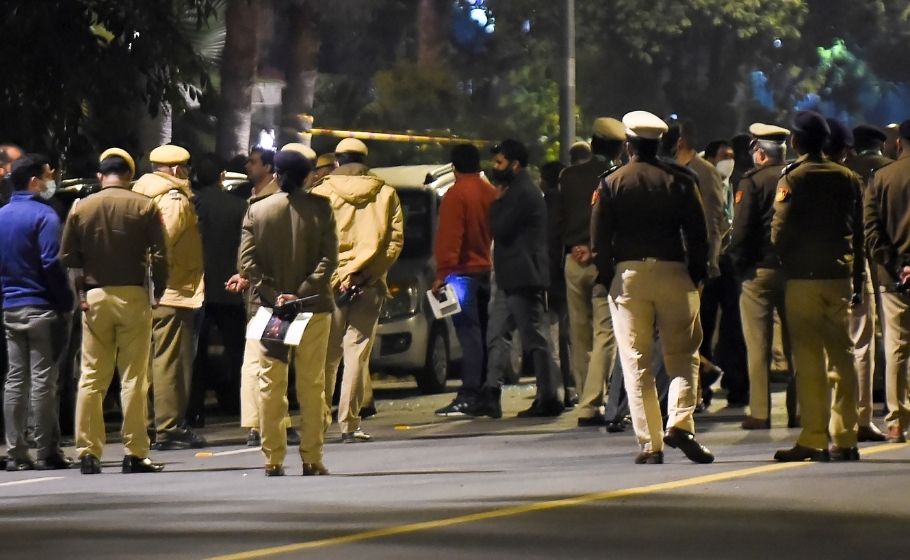
NSG team to analyse explosives from Israel embassy blast
The National Security Guard (NSG) will analyse fragments of the improvised explosive device (IED) that was detonated outside the Israeli embassy in Delhi on Friday evening. No one was hurt in the blast, which took place on the 29th anniversary of the establishment of diplomatic relations between India and Israel. Foreign Minister S Jaishankar spoke to his Israeli counterpart Gabi Ashkenazi soon after the incident and assured him of “fullest protection” to Israel’s mission and its diplomats in India.

The National Security Guard (NSG) will analyse fragments of the improvised explosive device (IED) that was detonated outside the Israeli embassy in Delhi on Friday evening.
No one was hurt in the blast, which took place on the 29th anniversary of the establishment of diplomatic relations between India and Israel. Foreign Minister S Jaishankar spoke to his Israeli counterpart Gabi Ashkenazi soon after the incident and assured him of “fullest protection” to Israel’s mission and its diplomats in India.
A team from NSG’s Bomb Data Centre visited the blast site on Saturday to collect the fragments. Forensics teams had earlier found evidence that ammonium nitrate was used in the IED, according to sources.
On Saturday Delhi Police sources said the blast could be a prelude to a larger attack against Israeli targets. Amid reports that Israel suspects involvement of Iran’s Revolutionary Guard Corps in the attack, the police have asked the Foreigners Regional Registration Office to provide details of Iranian visitors to the national capital in the last few weeks.
“The forensic team has got evidence of the usage of ammonium nitrate for the blast which caused a small trench at the site,” NDTV quoted sources as saying, adding that the impact would have been higher had RDX been used.
Iran has in the past accused Israel of killing its top nuclear scientists and criticised the West for complicity in Tel Aviv’s campaign of assassinations.

